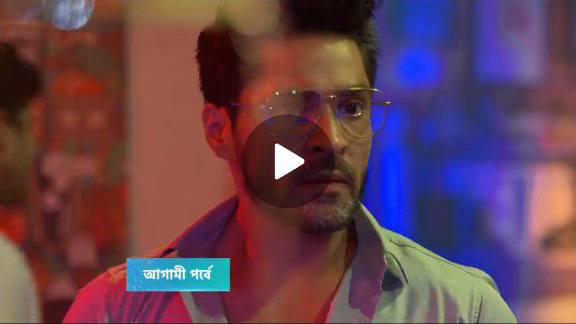মিলি আজকের পর্ব 06 অক্টোবর ফুল এপিসোড। মিলি সিরিয়াল আজকের পর্ব | bdnatok com #মিলি #miliserial
A Comprehensive Guide
Canada, with its breathtaking landscapes, diverse culture, and robust economy, is a dream destination for many travelers and immigrants. However, before you can embark on your Canadian adventure, you'll need to navigate the Canada visa processing system. Whether you're planning to visit Canada as a tourist, study, work, or immigrate, understanding the visa application process is crucial. In this comprehensive guide, we will walk you through the various types of Canadian visas, eligibility criteria, application procedures, and tips to ensure a smooth visa processing experience.
Types of Canadian Visas
মিলি আজকের পর্ব 06 অক্টোবর ফুল এপিসোড। মিলি সিরিয়াল আজকের পর্ব | bdnatok com #মিলি #miliserial
মিলি নাটক আজকের পর্ব 06 অক্টোবর ,মিলি সিরিয়াল আজকের এপিসোড,mili serial today full episode,actress,mili serial yesterday episode,mili serial Today new episode
Canada offers a range of visa categories, each designed to meet the specific needs and intentions of applicants. Here are the main types of Canadian visas:
Visitor Visa (Temporary Resident Visa - TRV):Purpose: For individuals who wish to visit Canada for tourism, visiting family or friends, or attending business conferences.
Duration: Typically issued for up to six months.
Eligibility: You must demonstrate that you intend to leave Canada at the end of your visit and have sufficient funds to support yourself during your stay.
Study Permit:Purpose: For international students planning to study at a Canadian educational institution.
Duration: Valid for the duration of your study program.
Eligibility: You must have an acceptance letter from a Canadian school, proof of sufficient funds, and a clean criminal record.
Work Permit:Purpose: For foreign nationals seeking employment in Canada.
Duration: Varies depending on the type of work permit (open or employer-specific).
Eligibility: You need a job offer from a Canadian employer and may require a Labor Market Impact Assessment (LMIA) in some cases.
Express Entry:Purpose: A point-based system for skilled workers and professionals seeking permanent residency in Canada.
Eligibility: Based on factors like age, education, work experience, and language proficiency.
Family Sponsorship:Purpose: Allows Canadian citizens and permanent residents to sponsor their family members for permanent residency.
Eligibility: Sponsor must meet specific criteria and demonstrate the ability to support the sponsored family member.

Provincial Nominee Program (PNP):Purpose: Provincial governments nominate individuals who have the skills and experience needed to contribute to the local economy.
Eligibility: Varies by province and program, but typically based on work experience, job offer, and intention to settle in the nominating province.
General Visa Application Process
While the specific steps and requirements may vary depending on the type of visa you're applying for, the general visa application process for Canada follows these steps:
Determine Your Eligibility:Carefully review the eligibility criteria for the specific visa category you're interested in.
Ensure you have all the necessary documents and meet the requirements.
Complete the Application:Obtain the appropriate application form from the official website of Immigration, Refugees, and Citizenship Canada (IRCC).
Fill out the application form accurately and honestly.
Pay the required application fees, which also vary depending on the type of visa.
Gather Supporting Documents:Depending on your visa category, you may need to submit various supporting documents such as passport-sized photos, proof of funds, educational transcripts, and letters of reference.
Some applicants may need to undergo medical examinations and provide police clearance certificates.
Biometrics and Interviews:Depending on your nationality and the type of visa, you may need to provide biometrics (fingerprints and photographs) at a Visa Application Center (VAC) or Application Support Center (ASC).
Some applicants may also be required to attend an interview at a Canadian embassy or consulate.
Submit Your Application:Review your application and supporting documents to ensure accuracy and completeness.
Submit your application to the appropriate Canadian visa office, either online or in person at a VAC or ASC.
Processing Time:Processing times vary depending on the type of visa, the volume of applications, and the time of year.
You can check the estimated processing times on the IRCC website.
Biometric Enrolment:If required, schedule an appointment to provide your biometrics at a VAC or ASC.
Medical Examination and Police Clearance:Complete any required medical examinations and obtain police clearance certificates as instructed by the visa office.
Interview (if necessary):Attend an interview if requested by the Canadian visa office.
Wait for a Decision:The visa office will review your application and make a decision.
If approved, you will receive a Port of Entry (POE) Letter of Introduction (for temporary visas) or Confirmation of Permanent Residence (for permanent residency applications).
Travel to Canada:For temporary visas, you can now travel to Canada with your visa.
For permanent residency applications, follow the instructions provided in your approval documents.
Tips for a Smooth Visa Processing Experience
Navigating the Canada visa processing system can be a complex and time-consuming process. Here are some tips to help you achieve a smooth experience:
Start Early: Begin the application process well in advance of your intended travel or move date. Processing times can vary, so it's crucial to plan ahead.
Thoroughly Review Requirements: Carefully read the eligibility criteria and requirements for your specific visa category to avoid common mistakes or omissions.
Seek Professional Advice: Consider consulting an immigration lawyer or consultant, especially if your situation is complex or if you're applying for permanent residency through Express Entry or a PNP.
Keep Copies of Documents: Make copies of all application forms and supporting documents for your records. It's also advisable to scan and save digital copies.
Be Honest and Accurate: Provide truthful and accurate information in your application. Misrepresentation or fraud can lead to visa rejection and future immigration problems.
Track Your Application: Use the online tracking tools provided by the IRCC to monitor the progress of your application.
Stay Informed: Stay up-to-date with changes in immigration policies and requirements, as they can evolve over time.
Prepare for Interviews: If you are required to attend an interview, prepare by reviewing your application and being ready to answer questions about your intentions in Canada.
Budget Appropriately: Consider all associated costs, including application fees, biometrics fees, medical exams, and police clearance certificates, in your budget.
Plan for Settlement: If you are applying for permanent residency, research settlement services and resources available to newcomers in Canada to help ease your transition.
In conclusion, the Canada visa processing journey can be a challenging but ultimately rewarding experience. Whether you're looking to visit, study, work, or immigrate to Canada, understanding the visa application process is crucial. By following the steps outlined in this guide, staying informed, and seeking professional guidance when necessary, you can increase your chances of a successful visa application and embark on your Canadian adventure with confidence. Remember that patience and thoroughness are key to a smooth visa processing experience, so plan ahead and take your time to ensure your application is accurate and complete.





